The 3 Most Important Skin-Care Swaps to Make First If You’re Going Natural
As more of us become hip to reading the list of ingredients on beauty products (like we learned to do with food labels), it can become really clear really fast that skin-care products—even the ones you love and thought were pretty good for you—contain things you're supposed to avoid. We're talking sodium lauryl sulfate, propylene glycol, and sketchy fillers that feel nice but are made of plastic. Gulp.
So what are you supposed to stock your bathroom with instead? We tapped Jeni Sykes, co-founder and head of skin-care at New York City skin-care spa Heyday, for pro tips on the three most important skin-care swaps to make when going for a clean skin-care routine.
Her advice? "Take your time and make changes one staple item at a time," she says. Start with the skin-care basics you use every day. The results you get just using cleaner, more effective staples, Sykes says, are "often way more profound and lasting than what you get from just trying a new serum or mask."
Read on for the 3 key swaps to make for creating a clean skin-care regimen.
1. Cleanser
Why: Many cleansers contain harsh detergents like sulfates that can leave your skin dry without really doing much for it.
Sykes says that many familiar drugstore cleansers promise a deep cleanse or acne relief, yet their ingredients don't live up to their claims. "They tend to contain harsh detergents, sulphates, and synthetic filler ingredients that actively irritate and weaken the skin over time, strip the skin of the natural moisture, and ultimately lead to more or new breakouts or a rashly, bumpy texture that looks like a breakout but is actually a skin reaction," she says.

{{post.sponsorText}}
She advises you to stay away from "skin ravaging suds" such as sodium lauryl sulfate, sodium laureth sulfate, diethanolamine, monoethanolamine and triethanolamine, or triclosan as well as artificial fragrances and dyes. "This is one of the first and most important steps you can take towards seriously improving your skin," says Sykes.
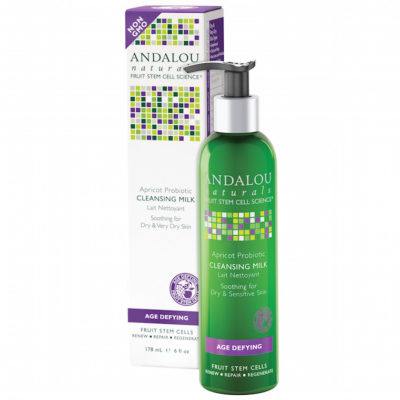
"If you love a drugstore standard like Cetaphil or are just afraid to try anything else for reactive or cranky skin, try Andalou Naturals Apricot Probiotic Cleansing Milk ($10) instead," says Sykes. "This is anti-inflammatory and redness-relieving, has probiotics to help balance and clear, and plant stem cells to add antioxidant, anti-aging benefits."
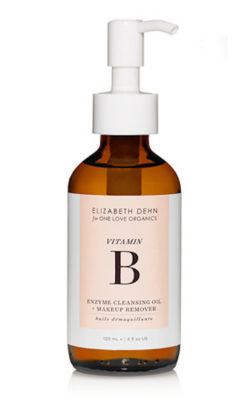
"One Love Organics Vitamin B Cleansing Oil ($42) removes makeup effortlessly, helps turn blackheads into distant memories, and smells like a vacation," she says. "Papaya and pumpkin enzymes break up dirt and debris, soften skin, and help clarify even the most sensitive breakout-prone skin."
2. Toner
Why: They're often full of alcohol and skin irritants.
Using the wrong toner can lead can throw off your skin's pH, lead to breakouts, and create to an unbalanced skin foundation of oil to dryness, says Sykes, who sees toner over-use wreaking havoc on many a client.
"Ditch unnecessarily drying toners made with ingredients like alcohol and skin irritants like propylene glycol, dyes, and artificial fragrances," she advises. "Instead, look for natural toner options that help balance the skin's pH and give it extra support from soothing or clarifying botanicals and anti-aging antioxidants."
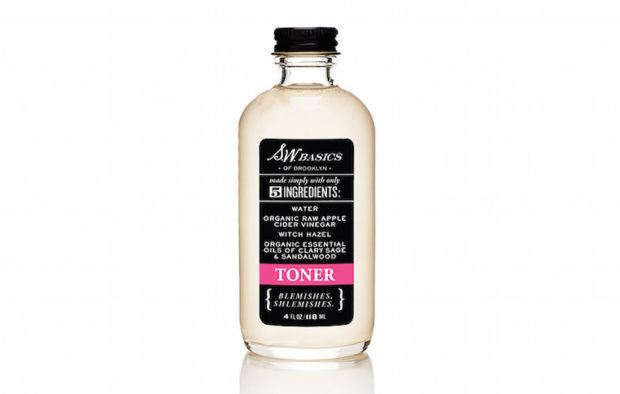
"A perfect swap for anyone concerned with breakouts is apple cider vinegar-based S.W. Basics Toner, ($22). It uses natural salicylic acid from witch hazel to clarify, and it helps heal and prevent breakouts with antibacterial, sebum-balancing clary sage and sandalwood," says Sykes.
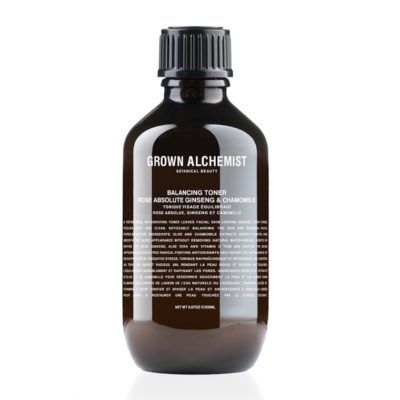
"Perfect after a creamy cleanse, Grown Alchemist Balancing Toner ($34) is an anti-inflammatory tonic with rose, chamomile, and ginseng. It works to even out your skin tone, refine your pores, balance the skin's pH, and help the next products in your routine penetrate more deeply for better results," says Sykes.
3. Moisturizer
Why: Many are loaded with filler ingredients like emulsifiers and texture enhancers that don't do anything for your skin, or worse, they may act as hormone disruptors.
"The average moisturizer is very likely to contain fillers like propylene glycol, a skin irritant and potential hormone-disruptor, as well as acrylate plastics or nylon that create a smooth feel but don't actually provide your skin with real hydration or nourishment," says Sykes.
In this case, your moisturizer can actually contribute to redness, dry skin woes, breakouts, or a buildup of that plastic-y product residue in the pores, she says.
Which is why she makes the case for moisturizers with a natural base of aloe, plant oils, and butters, which "you'll find your skin actually drinking in." This is opposed to "sitting pretty on the surface and tricking your eyes or hands until the product is washed off," according to Sykes.
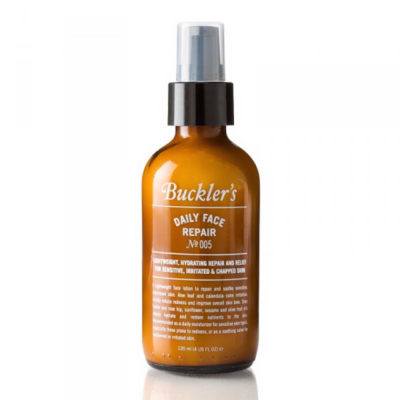
"Buckler's Daily Skin Repair Moisturizer ($42) is a lightweight refreshing moisturizer that soothes and cools the skin with aloe and mint, brightens with vitamin C, and has a touch of lactic acid to help keep combo to oily skin types balanced and clear," says Sykes.
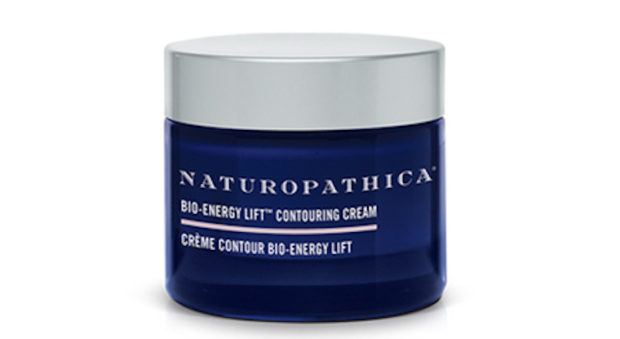
"I'll say it, even the La Mer your mother swears by doesn't hold a candle to Naturopathica Bio-Energy Lift Contouring Cream ($114)," she says. "This is a genuinely effective moisturizer designed to address the hyper-aging effects of city pollution and stress. With firming probiotics, nourishing sea flora like algae, and a remineralizing complex that restores glow to tired, depleted skin, it's worth every penny and then some."
Speaking of our beauty routines, these are 6 surprising things about beauty products you might not know (but should). And if you're lusting after the trendy Kylie Lip Kits or anything by Pat McGrath, you don't have to miss out just because they're not clean—these are the natural alternatives to the buzziest items in beauty.
Loading More Posts...